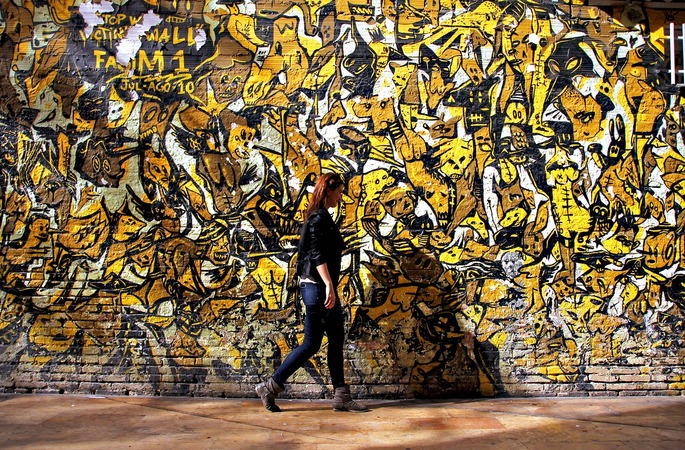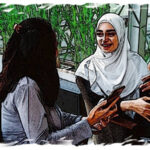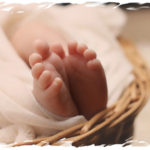KATINA MAGASINE 1985-1995
The Autonomous Women’s Group started its activity in 1985 in Thessaloniki, a city with a very vibrant student life and a lot of energy. Young women, mainly University students, who already had an active role in women’s matters, decided to form a new women’s group aiming towards autonomy. This meant the women of different political affinities and ideologies were invited, in order for all of them to be activated in issues of gender, without the existence of a central committee, as is the norm in other political groups.
The group housed itself on Vasileous Irakliou Street 19, in downtown Thessaloniki, in a very historic and commercial area. The area burst with life during the day, with retail stores, law offices, traditional markets with food; and, at night, it was silent under the misty quiet. In the beginning, 15 women that formed the core of the group rented a tiny office of about eight square metres on the ground floor behind the elevator.
This was a very small, almost invisible and inconvenient space. The building was ancient and cheap so that we could afford the rent and all the amenities, as we paid for everything ourselves. After some time the group could rent much bigger office space on the fourth floor of 20 square metres with a balcony that was about to fall, and that overlooked the buzzy city. The building manager warned us not to sit on the balcony with many of us seated at a time at once, as our weight could not be held. It was as if the manager had realised that we were all carrying something heavy, very internal and earthy, which we would want to share beyond the confines of the office.
We met in that room every Tuesday at 8 pm, 10 to 15 women, with absolute consistency and responsibility. We had so much passion and enthusiasm about our activities that our meetings had the sound of a noisy beehive: a microcosm in which different voices were heard, essential matters were analysed, and a new theory was created.
Long hours of discussion, analysis, disagreements, issues to think about, questions to raise and possible conclusions to draw. Everything had to do with women’s issues, gender inequality, sexism, patriarchy, violence and rape, women’s sexuality, reproductive rights, raising women’s awareness, our place in society and the initiation of a new society, with women at the centre, with legal and social equality as the focus.
The change that we envisioned had already started by us within the group and the way we functioned.
We were far from perfect and liberated from everything, but we were a liberating force, as we articulated publicly a truly feminist discourse in a city with very few feminist activities. We mainly questioned dominant norms, views and belief systems. We opposed sexist policies that marginalized women: unequal wages, illegal abortion, rapes that were never reported, domestic violence, the total lack of support centres for the victims, uncontrollable pornography, sexist pedagogy, exclusion of women from the political scene, unequal distribution of public positions, unequal opportunities for career development, trafficking, linguistic sexism, burdening women with multiple roles – and we jointly decided to protest against all this in public.
We were 20 women with a common goal, a shared vision, shared life experiences and fully conscious of the fact that this struggle would be very hard, with very few allies.
We took our decisions democratically, discussing everything in a circle until the final decision was made when there were disagreements. These disagreements played a catalytic role, as they helped us develop our arguments until we could reach a joint resolution. Our concessions were also significant, as they contributed to the process. In this way, we evolved and connected to one another. The result followed as the natural outcome of this process.
Within this context, our main activities were:
• The creation of the SOS line for abused and raped women which functioned daily, from 5-8 pm, from 1991-5.
• The publication of a feminist magazine with seven issues titled ‘Katina’. This is a name that is used as a derogatory term for women with petty interests, mainly gossip. We thus decided to recycle the term dynamically, through its use for our feminist magazine.
• The organisation of the 1st Women’s Festival in September 1987, in which only women took part, and the Dutch writer Anja Meulenbelt and the Greek composer Nena Venetsanou were invited for discussions and performances.
• Formation of self-awareness and self-analysis group.
• The event at Agios Dimitrios Hospital on Women and War
• Collaboration with local bodies, doctors/doctors, lawyers/lawyers, academics (Women’s Studies Group).
• Organisation of artistic events – cinema screenings, tributes, music meetings, parties.
• Protests and public marches in the city.
• Creation of a Radio show.
All these activities required us to be present, united, consistent and brave. We supported the group financially ourselves, on a monthly basis, and we published the magazine on our own, and we distributed it to the central bookshops of the city and to other cities where our friends could find supporters for it. The financial burden was high, as most of us were just students with minimal incomes and the space we rented had many expenses. This was our priority, though! For us having our own space was vital. For ten years the group received many newcomers, who became members of our group; some stayed on, some not.
We share ten years of bonding, emotions, fears, laughter, fun, fights, creativity, protesting, and we shook up the city’s quiet waters. We made a fuss. We were heard. We announced our presence on our own terms.
In 1995 we decided to stop the group. It was a decision taken quietly and discreetly in a manner that would not upset anything. So we paid off our dues and left the rented space, packed up our small amount of furniture and other items and left. The balcony was no longer in any danger. In any case, we rarely went out on the balcony, as we mainly built our vision within the small room and then went out to the streets.
In 2011, after some personal losses and dark moments, I felt the need to find these women, these ‘Katinas’ again, in our middle age, almost 16 years after our last meeting. The meeting was arranged in the tavern of a terrific friend. We met with great joy and great anxiety. Hugs, emotion, wonder, embarrassment, tenderness and nostalgia. This was the trigger for creating a documentary* about Katina, the autonomous women’s group of Thessaloniki.
Against oblivion and for the truth!
*Wilma is now raising funds for the editing and completion of the documentary which includes the story, the activities and the personal narratives of the group members.
You can support this effort through https://www.indiegogo.com/projects/documentary–62?fbclid=IwAR3GY6-rt5PTijQ24ht5VsDcHVn61xjKlmqMHkb15SrZ5MZHCmFjvgv-QpQ#/ (in Greek).
By Wilma Meniki, translated from Greek by Roula Tsokalidou



